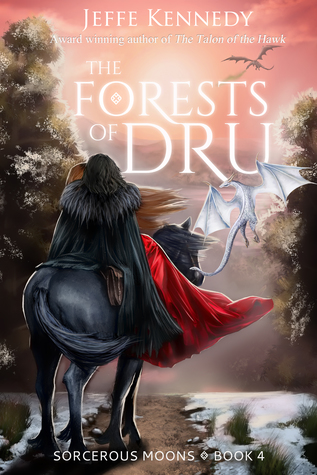 The Forests Of Dru (Sorcerous Moons, #4) by Jeffe Kennedy
The Forests Of Dru (Sorcerous Moons, #4) by Jeffe Kennedy Formats available: ebook
Series: Sorcerous Moons #4
Pages: 180
on January 24th 2017
Purchasing Info: Author's Website, Publisher's Website, Amazon, Barnes & Noble, Kobo
Goodreads
An Enemy LandOnce Princess Oria spun wicked daydreams from the legends of sorceresses kidnapped by the barbarian Destrye. Now, though she’s come willingly, she finds herself in a mirror of the old tales: the king’s foreign trophy of war, starved of magic, surrounded by snowy forest and hostile strangers. But this place has secrets, too—and Oria must learn them quickly if she is to survive.
A Treacherous CourtInstead of the refuge he sought, King Lonen finds his homeland desperate and angry, simmering with distrust of his wife. With open challenge to his rule, he knows he and Oria—the warrior wounded and weak, the sorceress wrung dry of power—must somehow make a display of might. And despite the desire that threatens to undo them both, he still cannot so much as brush her skin.
A Fight for the Future With war looming and nowhere left to run, Lonen and Oria must use every intrigue and instinct they can devise: to plumb Dru’s mysteries, to protect their people—and to hold fast to each other. Because they know better than any what terrifying trial awaits…
My Review:
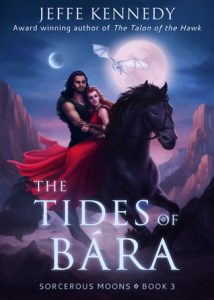 I love this series, but I’m not completely sold on this particular entry in it.
I love this series, but I’m not completely sold on this particular entry in it.
Let me explain…
This book picks up where The Tides of Bara leaves off, but it doesn’t really go anywhere until the very end. As the story begins, Lonen and Oria have finally reached Lonen’s kingdom, and all is not nearly as well as Lonen had hoped.
His people believe that Oria is an evil Baran sorceress who is controlling him with her magic. And while she certainly has bewitched Lonen, it isn’t with any nefarious power or sorcery. Against all odds, they have fallen in love with each other. And while love is certainly a kind of magic, if in this particular case it’s a snare, it’s a snare that has trapped them both.
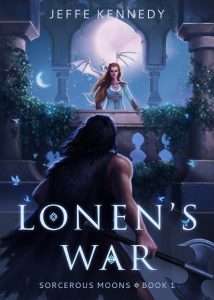 But his people don’t see that. Particularly his older brother Nolan. Nolan should have been king, but when he and his troop fell into a mighty crevasse during the battle for Bara, all the way back in Lonen’s War, everyone quite reasonably assumed he was dead. Considering that it took him two years to find his way back from under the earth, it wasn’t a totally ridiculous idea.
But his people don’t see that. Particularly his older brother Nolan. Nolan should have been king, but when he and his troop fell into a mighty crevasse during the battle for Bara, all the way back in Lonen’s War, everyone quite reasonably assumed he was dead. Considering that it took him two years to find his way back from under the earth, it wasn’t a totally ridiculous idea.
Especially since the Destrye needed a king right that very minute, and Lonen was the only prince available. Now they all have to live with the consequences of that moment. One of those consequences is that Lonen has brought Oria back from Bara to be his queen, whether his people like it or not.
And they mostly don’t.
Oria doesn’t believe that this is a long term problem. She is not the first of her people to be brought to Destrye, even if she is more willing than has usually been the case. She has nothing to go back to in Bara, not after the events of Oria’s Gambit. She is a fugitive and an exile.
But Baran sorceresses simply do not live long away from the magic that wells up under Bara. She believes that she will die of starvation, and relatively soon, unless she can find a way to reach the magic that exists within the forests of Dru, no matter how different that magic is from her own.
There might be a way, but not with all the forces of Destrye and Bara stacked against them. Unless they manage to outrun their fate yet again.
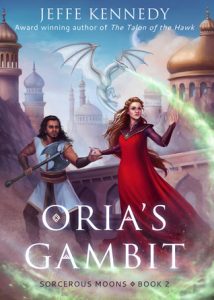 Escape Rating B-: The problem that I have with this entry in the series is that it feels like a chapter in a waiting game. Until the very end, it doesn’t move the action forward very much. For most of the book, Lonen and Oria are effectively held captive by their own need to recover, by the Destrye court, and by Lonen’s duties to his family and his doubts about his kingship. It takes most of the novella for them to get out from under all the burdens and back on the road again.
Escape Rating B-: The problem that I have with this entry in the series is that it feels like a chapter in a waiting game. Until the very end, it doesn’t move the action forward very much. For most of the book, Lonen and Oria are effectively held captive by their own need to recover, by the Destrye court, and by Lonen’s duties to his family and his doubts about his kingship. It takes most of the novella for them to get out from under all the burdens and back on the road again.
The individual entries in the Sorcerous Moons series are relatively short – less than 200 pages each. When there is a lot of action, as there was in the first two books, those pages really fly by. But now that the story has hit what feels like the equivalent of the “middle book”, those short pages continue the trough and don’t have enough time to get back to the action.
I still like Lonen and Oria quite a lot. They are still negotiating a difficult marriage, and it appropriately goes in fits and starts. They love each other, they need each other, but they began with no understanding of each other whatsoever, so reaching a place where they work together smoothly is a trial for them. As it should be.
Oria spends much of this book, and the last one, losing strength and heading towards her demise. Seeing her finally rally towards the end of this book made for an excellent scene, even if the result did cause even more problems.
The most interesting character in this whole story is Oria’s familiar, the derkesthai Chuffta. Chuffta is a small dragon with all the snark a reader could ever ask for in a long-term companion. He has been with Oria all her life, and not only knows all her weak spots, but also knows just when to tweak them. And he LOVES to start fires.
But it feels as if his fate as well as the humans, is peering over the edge of a dark precipice. Nothing will be the same after the battle to come. I just wish it would get here already!

 Breath of Fire (Kingmaker Chronicles #2) by
Breath of Fire (Kingmaker Chronicles #2) by  Breath of Fire follows directly after A Promise of Fire. Now that Cat and Griffin are firmly on the same side, Cat is all in with Griffin’s plan to sweep out the corrupt Alphas in all the kingdoms and replace them with a rule of law. She just doesn’t think she deserves to live to see it.
Breath of Fire follows directly after A Promise of Fire. Now that Cat and Griffin are firmly on the same side, Cat is all in with Griffin’s plan to sweep out the corrupt Alphas in all the kingdoms and replace them with a rule of law. She just doesn’t think she deserves to live to see it.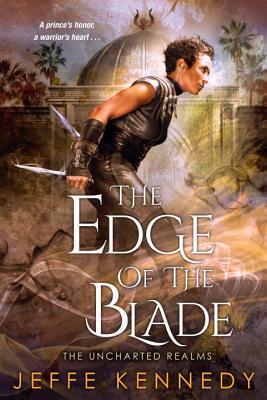 The Edge of the Blade (The Uncharted Realms #2; The Twelve Kingdoms #5) by
The Edge of the Blade (The Uncharted Realms #2; The Twelve Kingdoms #5) by 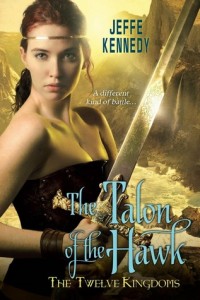 What makes Jeffe Kennedy’s
What makes Jeffe Kennedy’s 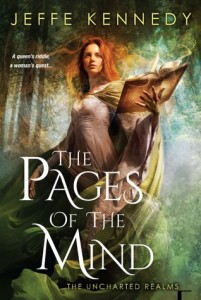 Jepp did not expect to be the ambassador. That was supposed to be Dafne’s job. But Dafne got caught up in Kral’s machinations in the Kingdom of Nahanau, as related in
Jepp did not expect to be the ambassador. That was supposed to be Dafne’s job. But Dafne got caught up in Kral’s machinations in the Kingdom of Nahanau, as related in 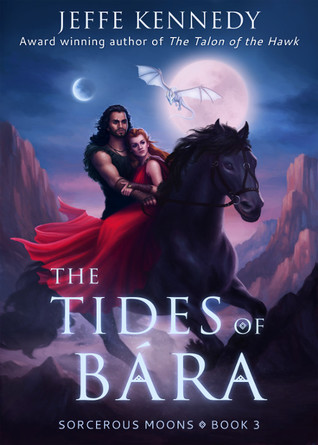 The Tides of Bára (Sorcerous Moons, #3) by
The Tides of Bára (Sorcerous Moons, #3) by 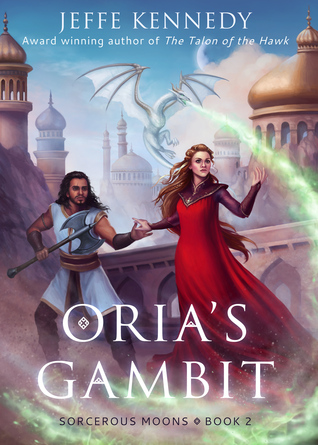 Oria’s Gambit by
Oria’s Gambit by  A Promise of Fire (Kingmaker Chronicles #1) by
A Promise of Fire (Kingmaker Chronicles #1) by  The Emperor's Arrow by
The Emperor's Arrow by 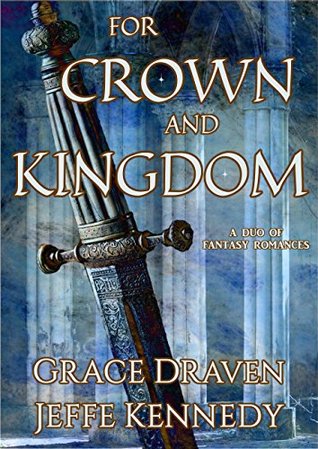 For Crown and Kingdom Formats available: ebook
For Crown and Kingdom Formats available: ebook 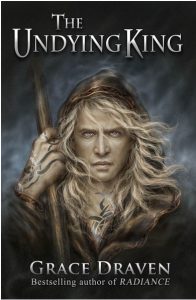 But in the meantime, I have this little treat of a story in The Undying King.
But in the meantime, I have this little treat of a story in The Undying King.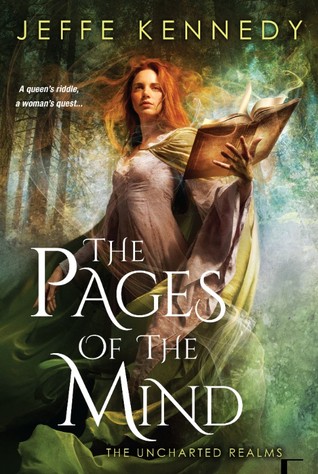 The Pages of the Mind (The Uncharted Realms #1; The Twelve Kingdoms #4) by
The Pages of the Mind (The Uncharted Realms #1; The Twelve Kingdoms #4) by 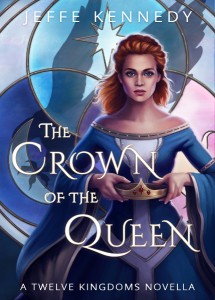 I have, for the most part, adored Jeffe Kennedy’s
I have, for the most part, adored Jeffe Kennedy’s 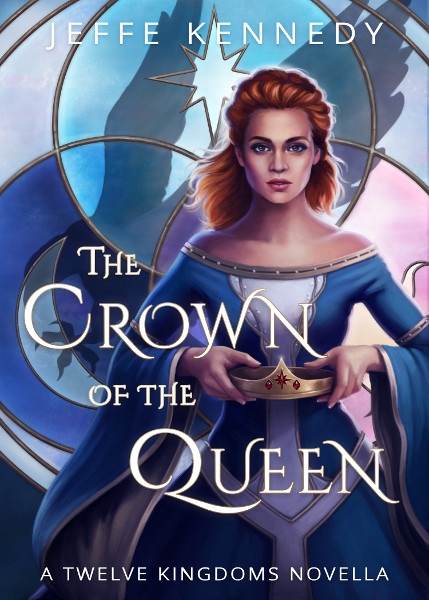 The Crown of the Queen Formats available: ebook
The Crown of the Queen Formats available: ebook